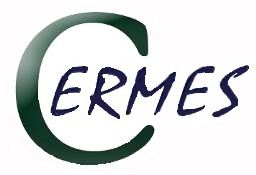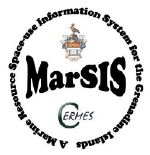Grenadines MarSIS
Marine Resource and Space-use Information System
Marine Resource and Space-use Information System
Grenadines Marine Resource & Space-use Information System 
A project of the
University of the West Indies, Cave Hill Campus, Barbados
Centre for Resource Management and Environmental Studies

Marine resources (including fishing, shipping and marine-based tourism) are very important to the people of the Grenadine Islands. A greater understanding of the location and the amount of marine resources, number of resource users and their patterns of space-use is critical to planning for the sustainable development and conservation of these resources.
The Grenadines Marine Resource Space-use Information System (MarSIS) brings together a variety of social, economic and environmental information drawn from both scientific and local knowledge into a single information system. Therefore areas important for livelihoods and conservation can be better identified and this information used to assist the management and planning of sustainable development across the Grenadine island chain.

The Grenada Bank (including both of the countries of Grenada and St. Vincent and the Grenadines) was chosen as a site for development of an integrated Marine Resource Space-use Information System (MarSIS). From 2006-2012, this participatory geographic information system (PGIS) was created together with a wide range of stakeholders including: a variety of people who work in the sea (including fishers, diveshops, daytours, watertaxis, yachting charter companies and ferries), marine management agencies of both countries (including the Fisheries, Planning, Tourism, Environment, Port Authority, Coast Guard and Forestry Departments), the Grenadine island communities, local and regional NGOs (Sustainable Grenadines Inc., People in Action, Friends of Tobago Cays, EPIC) and academia (including UWI, St. Georges University, Vassar and Middlebury College).
This unique information system has been created to integrate a wide range of marine-based knowledge and provide people with a more complete information base for coastal marine planning and management. This information can be used to highlight important areas such as: critical fishery habitats (essential fish habitats, nursery areas, endangered species); areas of high biodiversity; important marine ecosystems (mangrove, seagrass & coral reefs); areas of high cultural and recreational importance; areas important for fishing, marine-based tourism, yachting and shipping; areas of land-based sources of pollution, human threat and potential space-use conflicts.

From 2010-2012, the SusGren NGO was awarded a grant to use the MarSIS to carry out a marine spatial planning exercise to develop a transboundary marine multi-use zoning plan for the Grenadine Islands, funded by the National Ocean and Atmospheric Administration (NOAA). In tandem, the Global Environment Facility Small Grants Program (GEF SGP) provided funds to ensure the involvement of Grenadines marine resource users in this planning process. Additionally, The Nature Conservancy (TNC) has provided additional technical assistance required for this project.
The development of a transboundary marine multi-use zoning plan builds on the MarSIS initiative and the Protected Area Systems Plans of St. Vincent and the Grenadines and Grenada to increase the effectiveness of Protected Areas. The primary objective of this exercise was to collaboratively develop a vision for the development of the Grenadine Islands and increase the capacity to protect, manage and sustainable use the resources of the Grenada Bank.
The Grenadines MarSIS and the development of a marine space-use plan not only assists the two countries with conservation and sustainable livelihood initiatives, but can build the foundation for the designation of the Grenadine Islands as a transboundary UNESCO marine mixed (cultural/ecological) World Heritage Site (WHS). Achieving a WHS designation can offer the two countries international status, inspire ecotourism, and provide further legitimacy for endeavors to protect the environment and culture of the Grenadine Islands.

The Grenadines Marine Resource and Space-use Information System (MarSIS) is a project of
Centre for Resource Management and Environmental Studies (CERMES)
University of the West Indies, Barbados
together with the NGO
The Sustainable Grenadines, Inc. (SusGren)
Union Island, St. Vincent and the Grenadines
Dr. Kimberly Baldwin
Post Doctoral Research Associate, CERMES, UWI
Director, Marine Spatial Information Solutions Inc.
baldwin.kimberly@gmail.com
office: 246.417.4828
fax: 246.424.4204
Sustainable Grenadines, Inc.
susgrenpm@vincysurf.com
office: 784.485.8779
fax: 784.485.8778
info@grenadinesmarsis.com

